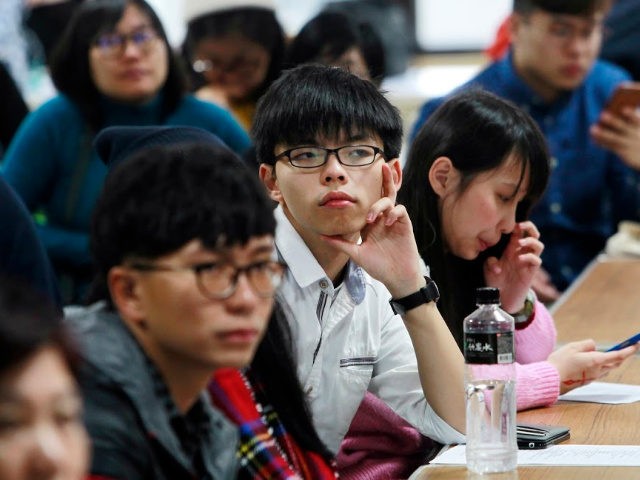A coalition of Taiwanese student groups announced the creation of the “Youth Front for Boycotting Fake News” over the weekend. The organization intends to challenge Chinese efforts to influence Taiwanese culture and politics with propaganda.
The Taipei Times reported that over a hundred student groups are involved in the coalition, with support from over 50 “expert” advisers. The front said it plans to focus on television because it is “the main source of information for older people.”
Members of the group said they were critical of biased media in general but were especially worried about mainland China’s growing influence over Taiwanese media.
The front began coming together a few weeks ago with an online petition calling for stronger action against Chinese influence on Taiwanese media. The petition was timed to coincide with Freedom of Expression Day. Organizers pledged to work together in the future to raise awareness, offer seminars, and arrange boycotts and demonstrations on campus.
The student groups criticized Taiwanese regulators for failing to enforce rules against politically biased media coverage and warned China is using economic leverage against broadcasters to shape Taiwanese coverage. Among China’s tactics is dangling the promise of access to mainland markets in front of Taiwanese broadcasters who agree to toe Beijing’s line.
The Taipei Times ran an editorial on Tuesday praising the Youth Front for Boycotting Fake News because “outright fake news of all sorts has become rampant”:
Media literacy is increasingly important in this era of information overload, and it is encouraging that students are taking it upon themselves to create change and make use of their tech savviness.
The inclusion of experts in the coalition shows that it is not just running high on youthful idealism, but has a clear focus with the necessary expertise.
Whether someone leans toward the pan-blue or pan-green camp, all can agree that a healthier news industry is needed — and that Beijing is a proven foreign threat that is trying to undermine Taiwan’s freedom of information, influence elections and cause panic.
“Pan-blue” refers to the coalition of Taiwanese parties generally supportive of mainland China and willing to cooperate with it, while “pan-green” means those in favor of autonomy or independence.
Many Taiwanese commentators see the student groups involved in the Youth Front for Boycotting Fake News as the next generation of the Sunflower Movement, an independence-minded 2014 youth movement highly critical of China and the pro-integration Kuomintang party. The Sunflower Movement energetically demonstrated against Kuomintang and helped create the political energy that knocked it out of power with the election of current President Tsai Ing-wen in 2016.
Some observers believe the Sunflower “moment” was the high-water mark of independence sentiment among Taiwanese youth, with the next wave of college and high-school students more resigned to living semi-autonomously in China’s orbit forever, motivated in part by opportunities for lucrative employment on the mainland.
Others speculate that younger Taiwanese feel increasingly separate from mainland China, less likely to think of themselves as “Chinese” instead of “Taiwanese,” and they are repelled by China’s bullying tactics after the election of Tsai. Apprehension about China’s threats to use military force and resentment of Chinese efforts to dominate Taiwanese politics make those offers of mainland employment and business opportunities less appealing.
The success or failure of initiatives like the Youth Front for Boycotting Fake News in the run-up to Taiwan’s next election will provide an interesting window into what Taiwan’s young people really believe, and how strongly they believe it.

COMMENTS
Please let us know if you're having issues with commenting.